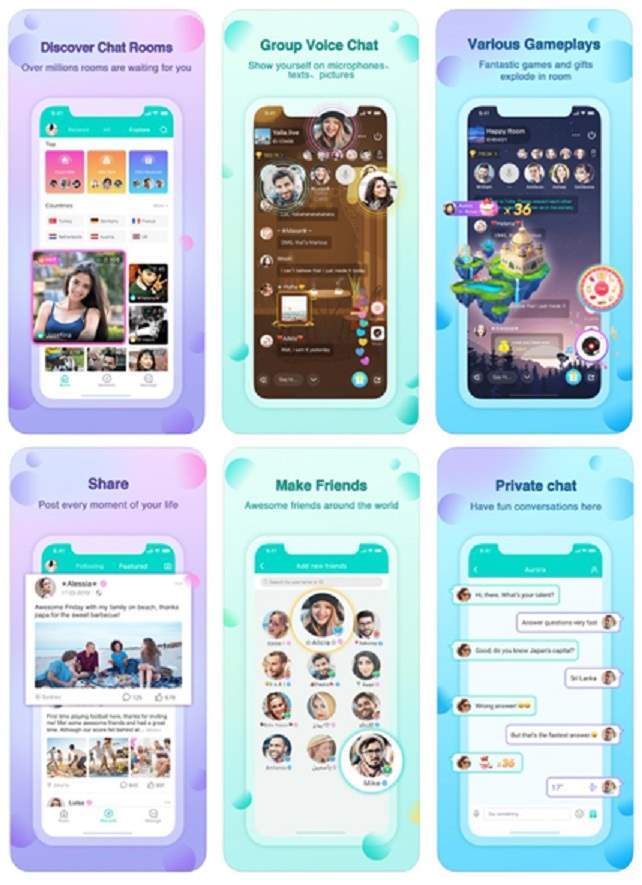AMMAN — TikTok, Instagram, Twitter, Facebook, and other
platforms that have managed to strike it big with their consumer base have had
one thing in common – they targeted a specific demographic through amending
their services to match its needs.
اضافة اعلان
In other words, a unique product that is delivered to the
right people at the right time.
While these applications do not necessarily cost you money,
your time is valuable – and your time spent on each app is considered by these
companies as their metric of success.
While Instagram is the de facto go-to for showcasing your
photography, Twitter for news and Tik-Tok for creative video entertainment, the
voice-centric social networking and entertainment app landscape has been
relatively cool for the last several years – until Yalla came along, that is.
Yalla is the largest voice chat platform, in terms of
revenue, within the MENA region. It also known as the “Tencent” of the Middle
East as the company has for all intents and purposes been aiming to mimic the
success tech giant platforms that have seen immense success in Chinese markets.
Yalla’s concept was developed by a Chinese national by the
name of Yang Tao, who, after spending 10 years in the UAE, decided to establish
the Yalla brand and work on building what was missing from the MENA app market.
With the company being established in 2016, it went on to create multiple apps,
namely two games and the Yalla group voice chat platform.
 Yalla acts as a
regular social media platform that promotes new experiences and sharing your
favorite moments with the online world. (Photo: Turner Novak)
Yalla acts as a
regular social media platform that promotes new experiences and sharing your
favorite moments with the online world. (Photo: Turner Novak)
Yalla is relatively straight forward. You get to join
hundreds of various public chat rooms segmented by age, topic, and interests
and make friends. Users are naturally prompted and encouraged to create rooms
of their own to find like-minded people to chat with.
With a monthly userbase of 12 million and the company going
public in the United States, it is hard to say that Yalla hasn’t found similar success
to its Chinese counterpart, albeit at lower profitability. The founder stated
that a cumulative 310 million hours were spent by users in their voice chat
rooms, and over 407 million hours in Yalla Ludo, their gaming addition to the
platform.
Still, even with a relatively small userbase compared to its
competitors, according to Tao, users spend an average of 5 hours on their app,
often listening in on others’ input on a given topic. With the app encouraging
voice chats over video chats, Yalla has managed to stay within the cultural
norms of the Middle East while developing a product that appeals to a specific
demographic.
Due to COVID-19, the app has seen tremendous growth as more
people felt isolated in their homes. Through Yalla, they found conversations
that appealed to their interests and friendships that have the potential to go
off-platform. Due to cultural differences within the different MENA markets,
expats and locals in the modern world of hyper-focus on technology have been
quoted to have had difficulties meeting people that were outside of their
common social circle. While Yalla’s goal is not solely to act as a meeting
platform, it certainly is a positive by-product of their efforts.
The platform also uses AI and manual reviews to ensure that
their single most important policy is adhered to – no PRP talk (Politics,
Religion and Adult content). According to Tao, this has been key to ensuring
success within the region as due to religious and cultural norms, such topics
are considered to be highly taboo, and a platform that would enable itself to
be festered with such content is unlikely to exist for very long. Aside from
these controversial topics, however, the platform is completely open to any and
all types of conversations for people to engage in, be it discussing the latest
episode of a popular TV series or the latest news about a particular sport.
Despite this, the app has seen stagnation in marketing and
growth due to its monetization model. While its user base continues to grow, its
revenue per individual user has dropped significantly over the last five years.
As a result, the release of updates and new features on the app has slowed,
leading to a decrease in user growth and engagement. Nonetheless, Tao stated
that through newfound capitol, he is confident that Yalla will diversify its
line of services to better attract and retain users while maintaining a fair
monetization system.
While Yalla has nowhere near the userbase of Tik-Tok,
Instagram or even Twitch, the platform does cater to a very particular market —
one that has much to say and intends to listen and learn from others.
The app is available on the
IOS and
Android with
cross-store functionality, meaning that both IOS and Android users share the
same pool of chatrooms.
Read more Technology news



